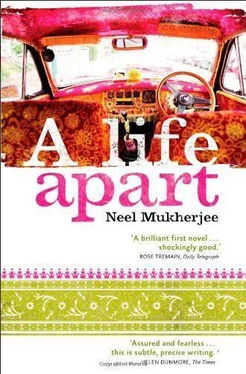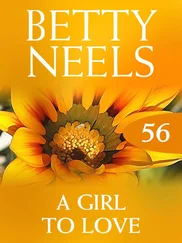Rana Bhim Singh, the queen’s brother-in-law, leads Alauddin to the white marble palace of Padmini. It is lit with thousands of candles, some of which, flickering and winking through the latticework windows, cast shadows and grids and nets that move and seem alive.
The Sultan is seated on a gold and velvet couch. After a while he says, ‘Why the delay? Let’s have a vision of the Queen so I can depart for Delhi in peace.’ Rana Bhim Singh removes the covering from a huge Aleppo mirror placed directly in front of the Sultan. In the depths of that glass, dark and flawless as the doe’s eyes, Padmini is reflected like the light of a thousand suns. The Sultan cannot believe this creature is human. Incredulous, he rises out of his cushioned seat and reaches out his hands to touch this shadow in the lonely depths of the mirror. Rana Bhim Singh cries out, ‘Beware, Sultan, don’t touch her reflection.’ From her hidden place, Padmini reaches for a heavy goblet, picks it up and hurls it towards the mirror with all the strength in her body. The glass shatters into hundreds of little bits and her reflection instantly disappears, like the mirage that it was, with the harsh, brittle jangle of breaking glass, leaving only the blind, dull back of the frame. Alauddin is so startled that he steps back three paces. There are only empty shards of glass everywhere, jagged points of cold light. It is as if she was never there, as if the Sultan had dreamed everything.
The horses move at such a slow canter, side by side, that Miss Gilby can hold the parasol in her left hand and the reins with her right with no degree of effort or stress. The morning mists have disappeared and it is another fine and golden autumn day. There is a light breeze, which sets the bamboo groves shivering with their rustling music, a sound Miss Gilby finds so comforting that she is convinced this particular tree is planted by gardeners not for the usual pleasures afforded by garden vegetation — its appeal to the eye, its fragrance, benevolent shade, fruit or flower — for none of those, but for its sound. As far as possible, she tries to direct her horse through these bamboo thickets to listen to their soothing papery rustle. Mr Roy Chowdhury seems to be in complete agreement with her about the music of bamboos: he calls it Nature’s Aeolian harp. Miss Gilby savours the felicitous comparison as the horses move along gently, past flooded rice fields with their eye-hurting green, past fragile mud embankments, past vast, watery fields of jute.
The conversation starts with talk of Bimala, as usual. ‘How is she coming along, Miss Gilby?’ he asks.
‘Wonderfully, just wonderfully, I must say,’ she answers, throwing a smile in his direction. ‘We’re in the middle of learning a song — Long, long ago it’s called. Perhaps you know it, Mr Roy Chowdhury?’
‘Yes, I do. Bimala seems to hum nothing but English airs nowadays. Whatever it is she might be doing — folding clothes, cooking, arranging flowers, sitting with me while I eat — there is an English tune on her lips.’ He chuckles gently.
Miss Gilby’s smile broadens. ‘Well, we are a success then, what do you think?’
‘Oh, an extraordinary success. She’s so much more confident now, so much more, more — what’s the word? — outgoing, I think, if that’s not too literal or punning. Did you know that Bimala’s naw jaa refuses to go to sleep nowadays unless Bimala reads out to her from one of her English books?’
‘Really?’ Miss Gilby is very surprised.
‘Yes, that’s the exact specification — a story from an English book. Bimala reads out every sentence in English — that’s part of the order, too — and then translates it for her. It seems to have become a daily ritual.’
Miss Gilby laughs with sheer pleasure at this achievement.
‘It’s just as well that Bimala has someone to talk to these days: I’ve been occupied with so many things that I’ve hardly had the time to sit and have leisurely conversations with her.’
‘I have noticed there are some demands on your time of late. I’ve been wondering about all these meetings and this crowd of gentlemen who are around the house of evenings. Do they have anything to do with what I’ve been reading about in Dawn ?’
He remains quiet for a while, then lets out a sigh before saying, ‘Well, Miss Gilby, it’s a long story and I do not know how acquainted you are with recent political developments. I’m afraid I would just bore you to tears if I launched into it.’
‘On the contrary, Mr Roy Chowdhury, I shall be very glad to be enlightened. As it is, I feel somewhat in the dark, left out of great happenings.’
‘There are no great happenings. Just a gathering of Bengali men very concerned with the destruction of our industries, our country’s steady downward spiral into poverty. We’re trying to work out ways and means to address the issues and do something about them.’
‘Are government policies to blame for some of these ills?’ Miss Gilby wants it straight from the horse’s mouth.
‘I’m not going to lie to you or beat around the bush, Miss Gilby. You must know about things such as the abolition of cotton import duties more than twenty years ago, or the imposition of the countervailing excise fifteen years later. It seems that our country has become just a supplier of raw materials to Europe. We grow cotton, or silk, it’s all shipped to England to be made into cloth, and this cloth, grown by us, on our soil, is sold back to us. Who does it benefit? Who makes the money? We have become a huge market for Europe. What is effectively erased is the need for industries in this country. Our production, our manufacturing, our sectors are all being wiped out. But it is our produce that powers British export.’ He pauses for a while. ‘I’m sorry, Miss Gilby.’
She is silent, sensing that he hasn’t quite finished. If she hadn’t read about it beforehand, she would have been very shocked.
‘Do you know British traders are buying increasing quantities of foodgrains and agricultural raw materials for export? This is forcing up prices and causing periodic famines.’ There is another long pause. They take a turn at a narrow mud track running past a field of unidentifiable vegetation, thick, lush, and somewhat menacing. The track leads to the village: Miss Gilby can see the straggle of huts, the minarets of the small mosque and the market square, which is nothing now, now that there are no traders or farmers selling their wares here, but just a clearing, empty, deserted.
‘What is the solution, Mr Roy Chowdhury? Am I wrong in thinking that the changes you want, the establishment and flourishing of science-industries in Bengal — and all this I gather from my very recent and, I’m sure, very rudimentary and incomplete reading — this beginning of technical education, the revival of traditional and indigenous crafts, all of this huge venture, is impossible without some radical political changes?’ She’s not going to bring herself to utter the momentous word.
‘You’re right, Miss Gilby.’ He pauses again. Something in the air between them tells Miss Gilby that he is going to say the unsayable.
He does. ‘All this could really be a preparation for the larger agitation for an independent India.’
There, it is out in the open now, Miss Gilby thinks, relieved and concerned at the same time. There is a loose group of five or six men walking towards them. One of them is carrying a large basket on his head and another, two ploughshares. There is an enormous coil, like a rolled up garden hose, of what Miss Gilby used to think was water-lily stem in another man’s hands. She now knows it is an edible aquatic plant called shaapla , which bears beautiful pink flowers. The men look scantily dressed to Miss Gilby. This is one thing about India she has never come to terms with, this sparsity of attire of its people, the general and constant sense of dirtiness of the little they wear, as if those were the only articles of clothing they had and washing them would mean having to go unclad for the duration of washing and drying. The men’s clothes look threadbare and soiled even from this distance. They are probably poor farmers.
Читать дальше












